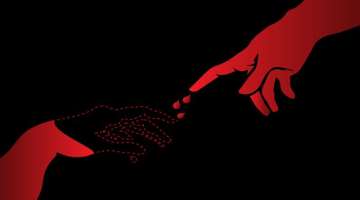Chandigarh holds the record of the highest rate of blood collection through voluntary donations in the country. The city has further witnessed a surge in voluntary donors from 87% in 2013 to 93% till the month of May this year. According to the report and data of Chandigarh State Aids Control Society (SACS), the total collection of blood in the year 2016-17 was 94,667 units, where one unit of blood can save three lives at a time. Also, all the blood banks including at PGIMER, Government Medical College and Hospital, Rotary blood bank have component separator facilities.
As per the World Health Organisation, 1 % of the population donating blood is sufficient to meet the requirements. "We meet those standards as our voluntary donations are more than the national average of 80%. There are many camps from where we collect blood and most of the donors are college and school students. Soon the Government Multi Specialty Hospital (GMSH) in Sector 16 will also have this separator that allows separation of blood components like plasma, platelets and red blood cells from the blood" said Dr Vanita Gupta, project director, Chandigarh SACS.
Though the collection of blood has increased over the years from 71,597 units in 2013 to 86,144 in 2017, myths and fears still exist when it comes to donating blood. "We had done a survey in our blood bank on what prevents people from donating blood. We found that one of the main reasons was fear of needles. Many felt that blood donation leads to weakness," said Dr Suchet Sachdev, department of blood transfusion, PGIMER.
Here are the basic Health requirements to become a blood donor-
"The haemoglobin level in women must not be less than 12 and for men it should not be below 14," said Dr Gupta.
The WHO recognizes that world over collection of blood from regular voluntary blood donors should constitute the main source of blood supply.

